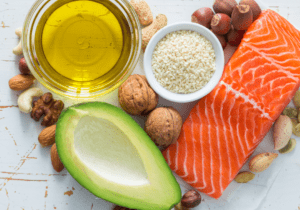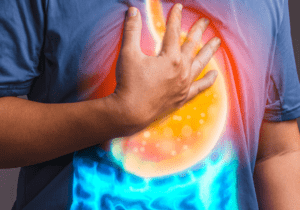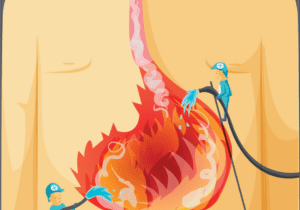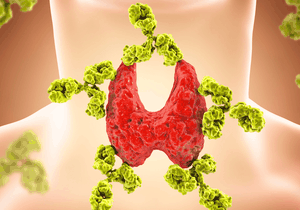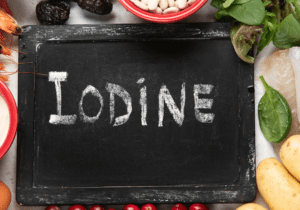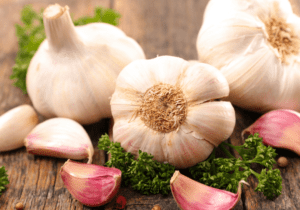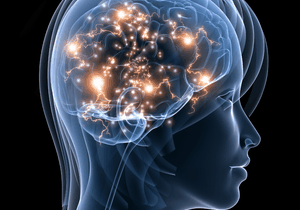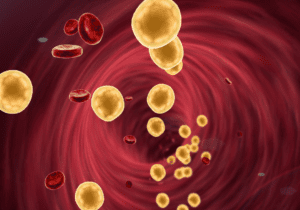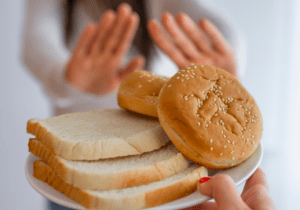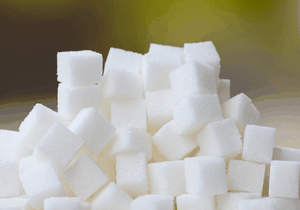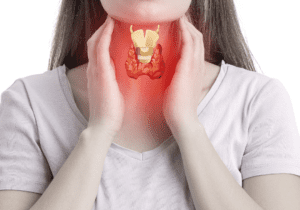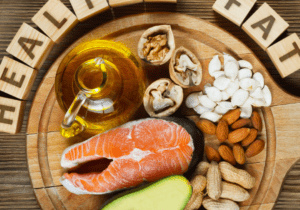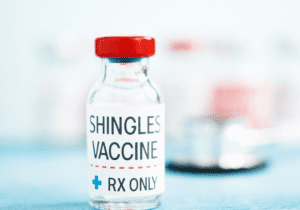GERD
GERD… The abbreviation seems to be on everyone’s lips these days. Commercials for acid blockers abound on TV, Prevacid® for 24-hour relief, Zantac® and Pepsid® for immediate relief, and so on. The truth? Gastroesophageal Reflux Disease, GERD, is 90% of the time a result of diminished, not excessive acid production. “What?????” you say, “Less acid is causing this burning feeling? Impossible! Besides, the acid blockers make me feel better, and I can eat anything I want.” Yes… I hear that all the time, so let me explain.
Digestion is one of the most essential processes in the body. Without a healthy digestive system, you cannot break down, transport, and absorb the nutrients in your food, and that’s not all. The resulting deficit in minerals, vitamins, essential amino acids, and fats that your cells need to work compromises your health. The result is a sick body most likely plagued by acid reflux. Who wants that?
So how does digestion work? The digestive process starts in your mouth and occurs throughout, in varying degrees, roughly 9 meters (30 feet) of the digestive tract. When you put food in your mouth, your salivary glands release several different digestive and protective compounds including enzymes designed to start the process of carbohydrate and fat digestion. Saliva also contains water to lubricate the food and facilitate swallowing. Once swallowed, food moves into the stomach where digestion continues with hydrochloric acid (HCL) production. HCL initiates and fuels the digestion of proteins. This process also signals your gallbladder and pancreas to secrete bile and enzymes into your small intestine and completes the breakdown of carbohydrates, proteins, and fats to facilitate absorption.
So where does acid reflux come in? Of all the organs, your stomach is the most acidic, for good reason. Where saliva provides some immune protection against any bugs we might eat, hydrochloric acid production completes the job, so to speak. We live in a world surrounded by many different kinds of creatures. Most, too small to see, exist both on our skin and inside our bodies. Some of these bugs are not so friendly and can make us sick. They, however, rarely survive in an environment that is inhospitable to them. That is the purpose and value of our stomach acid. These critters are protein-based and HCL digests proteins, get the picture? So, it is extremely important to have adequate HCl production in the stomach, not only to digest the food but also the bugs we eat, so they don’t make us sick.
When we don’t have adequate amounts of HCL, several things happen. One, the ability to digest proteins such as food and harmful microorganisms is compromised and two the ability to digest carbohydrates and fats is diminished. What do you suppose happens to undigested food? Just like food that’s left out for a while, it rots. Proteins putrefy, carbohydrates ferment, and fats rancidify, and all those processes make acids. The result is a build-up of acid in your stomach that eventually increases to the point where it backs up into the esophagus and you feel the burn. The problem is that all that excess acid also irritates the lining of your stomach over time, and you become more sensitive to any acid, including your own compromised manufacture of HCL. That’s why antacids work. But are they really taking care of the problem, or are they making things worse over time? That is a question you need to contemplate and if you’re interested in getting more information, you can always call me.
